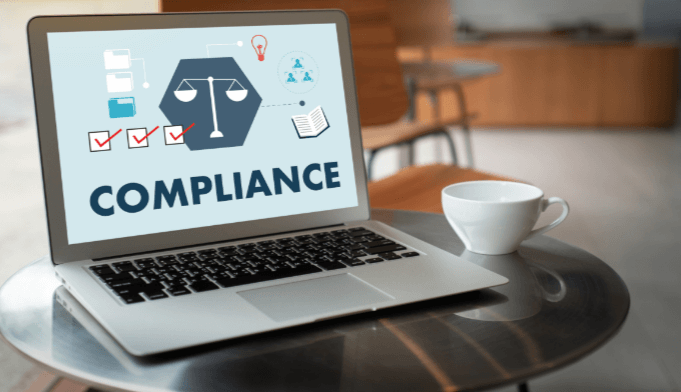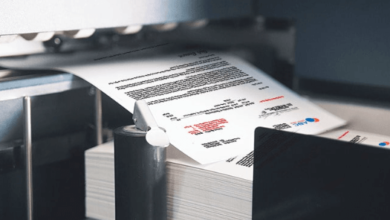How to Choose the Best Compliance Service

Introduction
In today’s complex business environment, maintaining compliance with industry regulations is critical for success and survival. Non-compliance can lead to hefty fines, legal challenges, and a tarnished reputation. As a result, businesses of all sizes are increasingly turning to compliance services to help them navigate the intricate web of regulations and standards that govern their operations. But with so many options available, how do you choose the best compliance service for your needs?
Selecting the right compliance service requires a thorough understanding of your specific regulatory requirements, the unique challenges your business faces, and the capabilities of potential service providers. In this guide, we’ll walk you through everything you need to consider when choosing a compliance service, from understanding your compliance needs to evaluating potential vendors, ensuring you make an informed and strategic decision.
Understanding Compliance Services
Before diving into the selection process, it’s essential to understand what compliance services entail. Compliance services are professional offerings provided by third-party companies that help businesses adhere to legal, regulatory, and industry-specific requirements. These services can range from audit support and risk assessments to ongoing monitoring and reporting.
Compliance services are designed to mitigate risks associated with non-compliance, which can include penalties, loss of business, and damage to reputation. They also help businesses streamline their processes, maintain up-to-date records, and ensure that all operations align with current regulations.
The Importance of Compliance in Business
Compliance is not just about avoiding penalties; it’s about building a sustainable and reputable business. In regulated industries like finance, healthcare, and manufacturing, compliance is a legal requirement. However, even in less regulated sectors, maintaining compliance can protect a business from legal risks and enhance its credibility with customers, investors, and partners.
In the age of globalization and digitalization, regulatory landscapes are continually evolving. Businesses must stay ahead of these changes to remain competitive and compliant. Failure to do so can lead to significant setbacks, including financial loss, legal challenges, and loss of consumer trust.
Key Factors to Consider When Choosing a Compliance Service
When selecting a compliance service, several factors need to be considered to ensure it meets your specific needs. These factors include:
1. Industry Expertise
The first step in choosing the best compliance service is to find one with expertise in your industry. Compliance requirements vary significantly across sectors, so it’s crucial that the service provider understands the specific regulations and standards that apply to your business. Whether you’re in healthcare, finance, manufacturing, or another industry, your compliance service should have a proven track record of working with businesses like yours.
2. Range of Services
Different businesses have different compliance needs. Some may require a full suite of services, including risk assessments, policy development, training, and ongoing monitoring. Others may only need support in specific areas. When evaluating compliance services, consider the range of services they offer and whether they can tailor their offerings to meet your needs.
3. Technology and Tools
In today’s digital age, technology plays a crucial role in compliance management. The best compliance services use advanced tools and software to streamline processes, manage data, and ensure real-time compliance tracking. Look for a service provider that offers robust technological solutions, such as compliance management systems, automated reporting, and data analytics, to enhance your compliance efforts.
4. Cost and Value for Money
Cost is always a factor when choosing a service provider, but it should not be the sole consideration. While it’s essential to find a compliance service that fits within your budget, it’s equally important to assess the value they offer. A low-cost service that doesn’t fully meet your needs can end up costing you more in the long run due to compliance failures. Instead, focus on finding a service that provides a balance between cost and comprehensive, high-quality support.
5. Reputation and Track Record
The reputation of a compliance service provider is a strong indicator of their reliability and effectiveness. Research the provider’s history, read reviews, and ask for case studies or references from past clients. A reputable provider should have a solid track record of helping businesses maintain compliance and avoid penalties.
6. Customization and Flexibility
Every business is unique, and so are its compliance needs. The best compliance services offer customizable solutions that can be tailored to your specific requirements. Whether you need full compliance management or support in certain areas, your provider should be flexible enough to adapt their services to fit your business model and objectives.
7. Customer Support and Service Level Agreement (SLA)
Compliance is an ongoing process that requires continuous support. When choosing a compliance service, consider the level of customer support they offer. Are they available to assist you whenever a compliance issue arises? Do they provide dedicated account managers or a helpdesk? Additionally, review their Service Level Agreement (SLA) to ensure it meets your expectations for response times and resolution procedures.
8. Scalability
As your business grows, your compliance needs will likely evolve. It’s essential to choose a compliance service that can scale with your business. This means the provider should be able to expand their services or offer additional support as your company expands or enters new markets.
9. Global Reach and Understanding of Local Regulations
If your business operates internationally, or plans to expand globally, you need a compliance service that understands the complexities of international regulations. The best providers have a global reach and can help you navigate local compliance requirements, ensuring that your business remains compliant in all the regions where you operate.
10. Risk Management Approach
A proactive approach to risk management is essential in compliance. The best compliance services don’t just help you meet current regulations; they also help you anticipate and mitigate future risks. Look for a provider that emphasizes risk assessment and management as part of their service offering.
11. Training and Education
Compliance is not a one-time task; it’s an ongoing process that requires constant attention and education. Choose a compliance service that offers training and educational resources for your team. This could include workshops, online courses, or regular updates on regulatory changes. By educating your employees, you can create a culture of compliance within your organization.
12. Audit Support
Audits are a crucial part of compliance, and they can be stressful if you’re not prepared. A good compliance service provider will offer audit support, helping you gather necessary documentation, prepare for audits, and respond to any findings. This support can be invaluable in ensuring that your business passes audits with flying colors.
13. Transparency and Reporting
Transparency is key when it comes to compliance. Your compliance service should provide clear and regular reports on your compliance status, any issues that arise, and the steps being taken to address them. This transparency allows you to stay informed and take proactive steps to maintain compliance.
14. Data Security and Privacy
In an era where data breaches and cyber threats are rampant, data security is a critical aspect of compliance. Your compliance service should prioritize data protection and adhere to the latest security standards. This includes ensuring that your sensitive information is handled with care and that any compliance-related data is stored securely.
15. Legal Expertise
Compliance is closely tied to legal regulations, so it’s beneficial to choose a compliance service that has legal expertise or partnerships with law firms. This ensures that the service provider is up-to-date with the latest legal changes and can provide sound legal advice when necessary.
16. Vendor Independence
Some compliance services are tied to specific vendors or products, which can limit their objectivity. It’s often better to choose an independent compliance service that can offer unbiased advice and select the best tools and strategies for your business, rather than pushing a particular product or solution.
17. Cultural Fit
The cultural fit between your business and the compliance service provider can impact the effectiveness of the partnership. Choose a provider whose values and working style align with your own. A good cultural fit can lead to better communication, collaboration, and overall success in maintaining compliance.
18. References and Testimonials
Before making your final decision, ask potential compliance services for references and testimonials from past or current clients. Speaking with other businesses that have worked with the provider can give you valuable insights into their strengths, weaknesses, and overall performance.
19. Trial Period or Pilot Program
Some compliance services offer trial periods or pilot programs that allow you to test their services before committing to a long-term contract. This can be a great way to evaluate the provider’s capabilities, service quality, and fit with your business needs.
20. Long-Term Partnership Potential
Compliance is not a one-off project but an ongoing process that evolves with your business. When choosing a compliance service, consider the potential for a long-term partnership. A provider that understands your business and can grow with you will be more valuable in the long run than one that offers short-term fixes.
How to Implement a Compliance Service
Once you’ve selected the best compliance service for your business, the next step is implementation. Effective implementation requires careful planning, clear communication, and ongoing management.
1. Define Your Objectives
Before implementing a compliance service, clearly define your objectives. What do you hope to achieve with this service? Whether it’s meeting specific regulatory requirements, reducing risks, or improving audit performance, having clear goals will guide the implementation process.
2. Engage Key Stakeholders
Involve key stakeholders from across your organization in the implementation process. This includes leadership, legal, HR, IT, and any other departments that play a role in compliance. Engaging stakeholders ensures that everyone understands the importance of compliance and supports the implementation process.
3. Develop an Implementation Plan
Work with your compliance service provider to develop a detailed implementation plan. This plan should outline the steps involved, timelines, responsibilities, and key milestones. A well-structured plan helps ensure a smooth transition and minimizes disruptions to your business operations.
4. Train Your Team
Training is a critical component of successful compliance implementation. Ensure that your team is adequately trained on the new processes, tools, and responsibilities associated with the compliance service. Ongoing training should also be part of the plan to keep your team updated on any changes or new requirements.
5. Monitor and Review Progress
Once the compliance service is in place, continuous monitoring and regular reviews are essential. Monitor progress against your objectives, track key metrics, and address any issues that arise. Regular reviews with your service provider will help ensure that the service continues to meet your needs and that any necessary adjustments are made promptly.
6. Communicate Regularly
Maintaining open communication with your compliance service provider is crucial for ongoing success. Regular check-ins, status updates, and feedback sessions help ensure that the service remains aligned with your business needs and that any challenges are addressed quickly.
Frequently Asked Questions
How can I determine if a compliance service is reputable? Look for a compliance service with a strong track record, positive client testimonials, and industry-specific expertise. Research their history, read reviews, and ask for references to gauge their reputation.
What should I do if my compliance needs change over time? Choose a flexible compliance service that can adapt to your changing needs. Regularly review your compliance requirements and discuss any changes with your service provider to ensure they can continue to meet your needs.
Can a compliance service help with international regulations? Yes, many compliance services have expertise in international regulations and can help businesses navigate the complexities of global compliance. Ensure that the service provider has a global reach and experience in the regions where you operate.
Is it better to choose a local or global compliance service? The choice depends on your business needs. A local service may offer more personalized support and a deep understanding of regional regulations, while a global service can provide broader expertise and support for international operations.
How do I know if a compliance service is cost-effective? Consider the value the service provides relative to its cost. Assess the comprehensiveness of their offerings, the quality of their support, and their success in helping businesses maintain compliance. A cost-effective service balances price with value.
What role does technology play in compliance services? Technology is crucial in modern compliance services, offering tools for real-time monitoring, automated reporting, data management, and risk assessment. A service that leverages advanced technology can enhance your compliance efforts and reduce manual workloads.
Conclusion
Choosing the best compliance service for your business is a critical decision that can have long-lasting impacts on your success. By carefully considering the factors outlined in this guide, you can select a service that not only meets your current needs but also supports your growth and evolution in a constantly changing regulatory landscape. Remember, compliance is an ongoing journey, and the right service provider will be a valuable partner in navigating this journey, helping you mitigate risks, maintain your reputation, and achieve long-term success.





